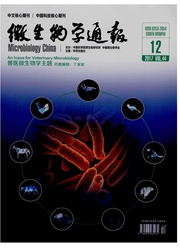

 中文摘要:
中文摘要:
随着四环素类抗生素在畜禽养殖中的广泛应用,畜禽粪便已成为四环素类抗生素和抗性基因的重要富集位点,其未经处理直接施用具有潜在的生态环境和人类健康风险。堆肥化处理可有效消减畜禽粪便中的四环素类抗生素,并且对抗性基因的扩散和传播具有一定的控制效果。本综述比较了不同的堆肥化工艺对粪肥中四环素类抗生素消减的效果,并重点讨论了其微生物降解机理,总结了堆肥化处理对粪肥中四环素抗性基因消减的研究进展,进一步讨论了堆肥化处理过程中抗性基因变化的微生态机理与控制策略,最后提出了采用热水解等预处理工艺去除抗生素压力和采用厌氧堆肥化工艺增强抗性基因控制的技术建议,以及从动态的角度采用高通量的检测技术来解析抗性基因消减机制的研究策略建议。
 英文摘要:
英文摘要:
With the wide use of tetracyclines in the livestock and poultry industries, animal manure has become an important reservoir for tetracyclines and tetracycline resistance genes. The direct application of untreated manure will shade great potential risks for ecological environment and human health. Composting processes (including aerobic composting, anaerobic digestion and anaerobic lagoon, etc.) are important technologies for biotreatment of animal manure. Recent process on studies of the removal effects of tetracyclines and resistance genes in animal manure by different composting processes, the microbial degradation mechanism of tetracyclines during composting and the microbial ecological mechanism and strategies for controlling the proliferation of tetracycline resistance genes by composting were reviewed. Finally, suggestion of controlling tetracycline and resistance genes by using thermal hydrolysis pretreatment and anaerobic composting processes and strategy of dynamically exploring the removal mechanism of resistance genes during composting using high-throughputtechniques were proposed.
 同期刊论文项目
同期刊论文项目
 同项目期刊论文
同项目期刊论文
 期刊信息
期刊信息
